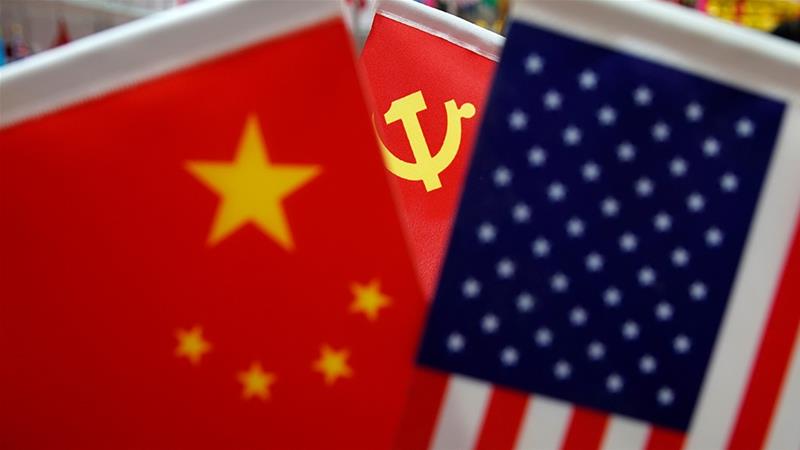China's communist party directive aims to remove all foreign hardware and software within three years, FT reports.
China's Communist Party has ordered all government offices and public institutions to remove foreign computer equipment and software within the next three years, the Financial Times reported on Sunday.
The directive, which mirrors efforts by the administration of United States President Donald Trump to curb the use of Chinese technology in the US and among America's allies, is the first publically known order by Beijing that seeks to force Chinese tech buyers to switch to domestic suppliers.
Earlier this year, the Trump administration banned US companies from doing business with Chinese telecoms giant Huawei Technologies. Washington has also been pressuring US allies to shun Huawei in the buildout of next-generation, 5G mobile telecommunications networks.
Last month, the US Federal Communications Commission (FCC) voted unanimously to designate Huawei and ZTE - another Chinese telecom firm - as national security risks. The decision, which Huawei is challenging in a US court, effectively bars the Chinese telecom firms from a US government subsidy programme.
The US has also blacklisted other Chinese technology firms implicated in human rights abuses of Muslim minorities in China's Xinjiang region.
'3-5-2'
Beijing's policy of moving Chinese government offices away from US technology is yet another sign of a so-called "decoupling" of supply chains between the two countries and would likely deal a blow to US tech giants HP, Dell and Microsoft.
The Chinese directive would necessitate swapping out an estimated 20 million to 30 millions pieces of hardware with 30 percent of substitutions happening in 2020, 50 percent in 2021, and a further 30 percent in 2022, the Financial Times reports, citing a note from analysts at broker China Securities.
According to the FT, China Securities analysts said the order had come from the Chinese Communist Party's Central Office earlier this year.
Beijing's latest salvo is happening against the backdrop of a broader trade war between the US and China, in which technology has emerged as a major point of contention, with the Trump administration seeking to curb Beijing's practice of forcing US firms to transfer their technologies to Chinese firms.
The two sides have been working to hammer out a "phase one" trade deal aimed at de-escalating tensions. A new round of US tariffs on some $156bn of Chinese goods is slated to take effect on December 15.
SOURCE: News agencies

